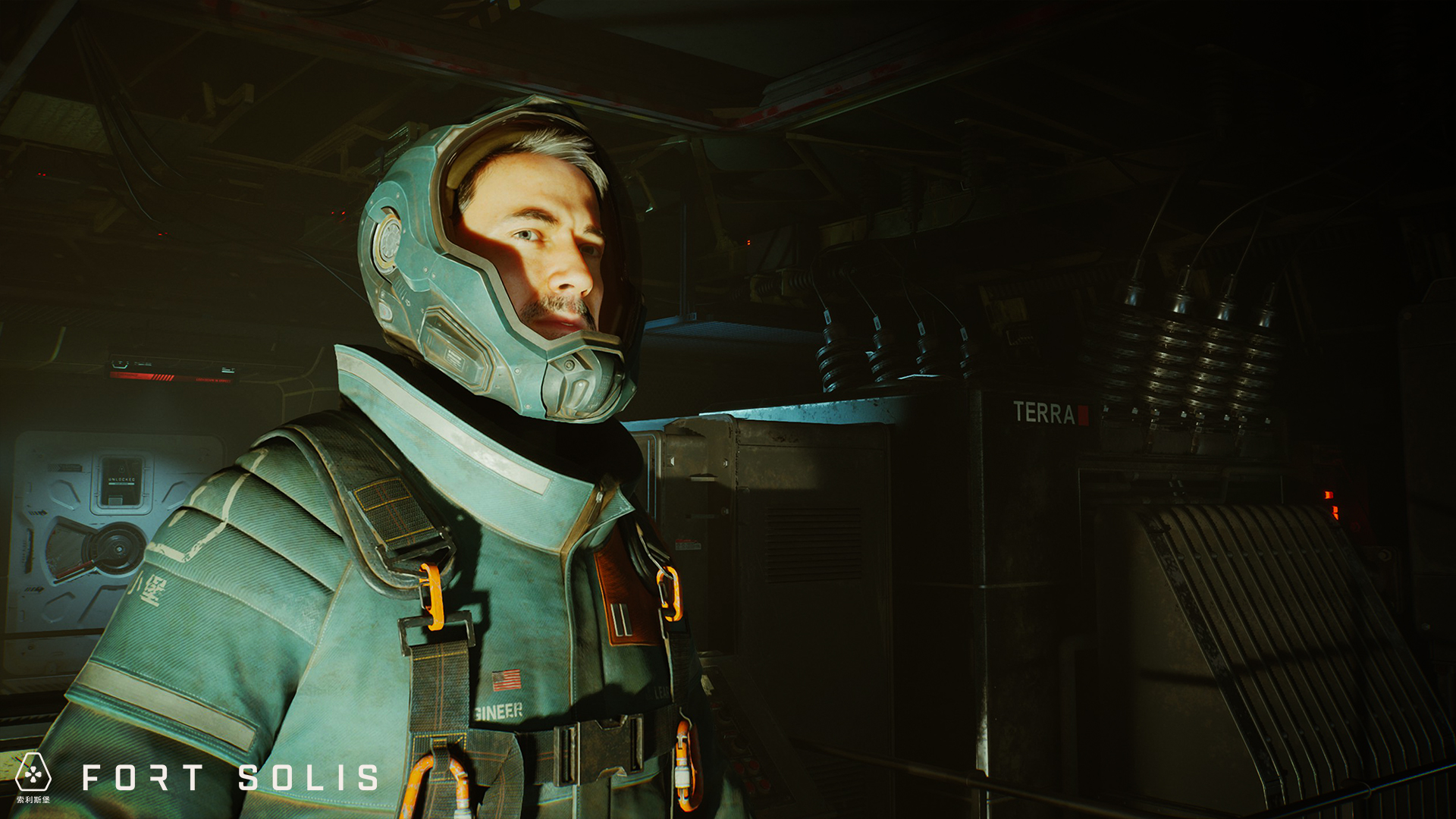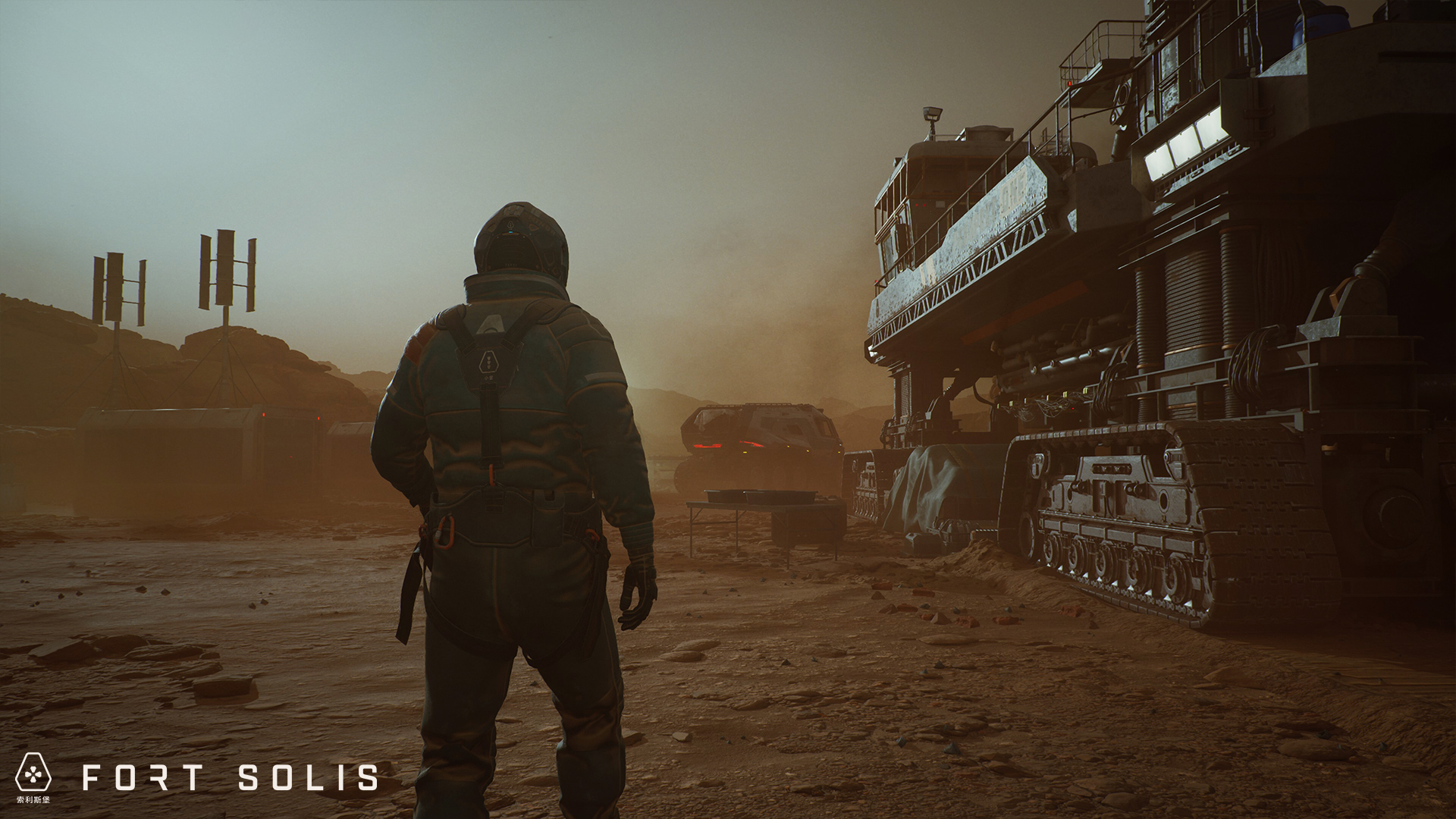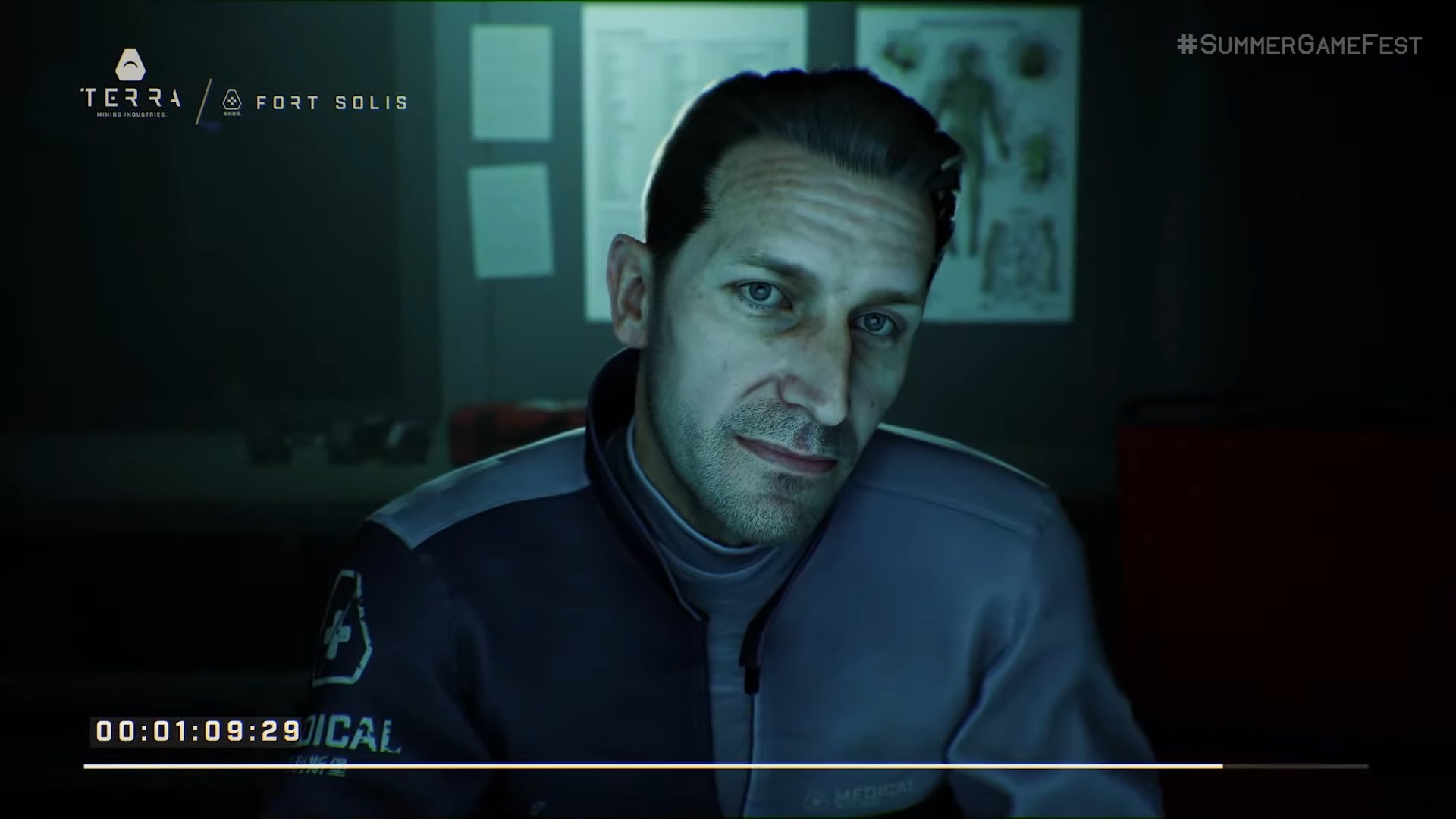Fort Solis spins an interesting space mystery with its TV show style format
Hands on with Fort Solis' empty corridors to find out where everyone went…

There's a hard vein of sci-fi mined by Fort Solis' opening hour. Set on Mars it takes the same route as The Expanse to the stars; with industrial settings and hard working, get-the job-done-type people thoroughly unimpressed by space. It makes the mystery of the first hour I played all the more interesting, with a far more grounded and weary, 'I don't have time for this shit' vibe instead of anyone throwing their hands in the air and announcing, 'ALIENS'.
I mean… it might be aliens. Again, I've only played the first hour, but if it is then engineer Jack Leary – played by Red Dead Redemption 2's Roger Clark – is going to be really pissed off about it. He's meant to be on vacation tomorrow and is investigating the nearby Fort Solis' distress call with all the enthusiasm of a parent who, having said 'don't make me come up there', has indeed been made to come up there.
Mars attacks
It's a slow burn, with Jack prowling the empty corridors of Solis, a research base that's sent out a call for help and then gone dark. It's heavy on the atmosphere, opening with sweeping views of the red planet's dust storms and Solis solemnly breaking through the clouds like a man made mountain. The opening chapter I played is carried well by the conversations between Jack and the partner, Jess (played by Julia Brown), he left back at their own station. Most of what I played riffs on the dialogue between these two as Jack explores, the two chatting with an easy going friendship that amply fills out the wandering around empty rooms.
It's an impressive-looking game while all this is happening, with a level of polish that belies its indie roots, a 10-15 person team and five-hour play time. According to writer and director James Tinsdale that's in part due to some very tight planning and focus: "We had to do something we could make in two to three years, with 10 to 15 people, that could be interesting [so] people take notice. But not too out of scope that our publisher wouldn't sign it". That focus has created spaces to explore that are finely detailed and atmospheric, building a believable world around your investigations.
It's helped by the fact that this is riding the wave of early Unreal 5 games (Tinsdale explains that they started work on it when Unreal 5 was still in alpha). One area where this tech and polish really shows are in the video diaries you find as you explore. In the time I played, the only life I found in the empty station was via personal logs, from the missing people supposed to be running the station. The facial performances here are really strong, with plenty of nuance from the slightest narrowing of the eyes or tightening of lips. It's also aided with some really naturalistic performances – people trip over words, and mumble as they think out loud. You can almost see the thoughts forming as they speak about what's been happening.

(Space) cabin fever
Troy Baker appears at this point, playing Medical Officer Wyatt in some diaries you can find – also now missing but also clearly having butted heads with some of the key station staff. As you find more videos he explains that the staff are getting sick because they're flouting regulations to work extra shifts and getting radiation poisoning from surface exposure to the sun. He becomes increasingly convinced that something is going on that's being kept from him and, in one recording, talks of hearing things in the night. He suspects secret deliveries, and seems to double down on his conspiracy theories. Buuut, in another log he confesses to having problems being away from his family and looks like he's got a bit of a slightly eye twitchy thing going on…
While the great visuals and naturalistic performances set the scene, the real draw is the mystery of what is actually going on. All I know so far is that there's some sort of as yet unexplained research going on that Troy's character, Wyatt, is unhappy about. Somehow that's led to the distress call and me arriving to explore empty corridors, trying to work out where everyone's gone. I won't spoil anything here but there is blood, specifically in the 'bad things happened here' quantities, and at least one body in the closing of the opening hour.
Sign up to the GamesRadar+ Newsletter
Weekly digests, tales from the communities you love, and more

It's a good start, and has a very similar weight and feel to the opening episode to a new season of something. That's exactly the sort of structure developer Fallen Leaf is going for, aiming for a game that appeals to a more TV show sort of attention span. There's good performances and dialogue throughout the exploration and mystery, and it feels like you're guiding the cast through the story as much as playing a traditional game. The only thing I'm not 100% on is the fixed and fairly slow walking speed necessary for the narrative focus. There's no ability to run, or even lightly jog, forcing you into a resolute and steady pace that actively discouraged me from straying from the path. You'd expect a game full of mystery to be all about exploring but when it takes so long to get back from checking out a dark corner, you soon learn to stick to the objectives you're given.
However, slow walking isn't enough to keep me from wanting to find out more. There's a genuine draw to what I played that leaves me curious to actually discover what's happened. Especially with the chapter 1 cliffhanger ending I won't give away here. The pace is eased as well by the constantly gentle and engaging back and forth between Roger Clark's Jack and Julia Brown's Jess as they investigate. It's also broken up some judicious use of action to push the plot forward. Although despite some late chapter surprises, what I played had a largely sedate pace to its developing thriller feel but one that, if you're in the right mood, has the growing burn of something you'll want to see through. The truth, whatever it is, will become clear when Fort Solis releases on August 22.

I'm GamesRadar's Managing Editor for guides, which means I run GamesRadar's guides and tips content. I also write reviews, previews and features, largely about horror, action adventure, FPS and open world games. I previously worked on Kotaku, and the Official PlayStation Magazine and website.


